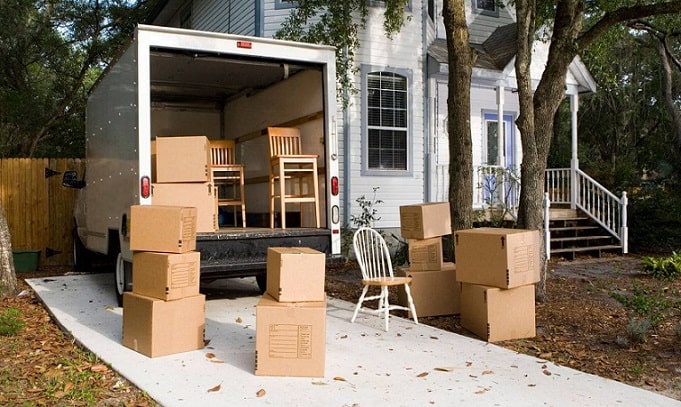Moving as a senior citizen can often be a difficult and overwhelming process. With age comes physical limitations and the potential to forget important details or overlook them entirely.
Additionally, seniors may struggle with mobility issues that make it hard to complete tasks associated with packing and moving. Whether you’re relocating across town or the country, it is important to have an organized plan in place to make a move easier on your physical and mental health. Here are some tips for seniors looking to make their next move seamless and stress-free.

1. Start planning early: Don’t wait until the last minute to start thinking about your move. Start researching, budgeting, and deciding what needs to be done as soon as possible. That way, you can have time to consider different options and diligently plan for any potential problems or inconveniences that may arise during the move.
2. Sort through your belongings: Before packing starts, sort through all of your items so you know exactly what needs to be moved and what can be donated or thrown out before the relocation. This will help make packing much easier and reduce costs associated with moving bulky or unnecessary items.
3. Take advantage of assistance programs: If available in your area, look into community-based assistance programs for seniors, which can help organize and pack for your move. These programs can be a great resource for those who need additional help in the moving process.
4. Stay organized: Before, during, and after the move, stay organized by labeling boxes according to contents and room location. This will make unpacking much easier and minimize confusion when you get to your new place.
5. Don’t forget medical needs: If you have any ongoing medical conditions or medications that need to be transported, make sure they are set aside in their containers or bags so they don’t get lost among other items while you pack unpack. Additionally, consider researching potential changes with insurance coverage if moving out of state and update medical documents accordingly.
6. Pack a bag of essentials: Before leaving your old home, pack an overnight bag with all the necessary items you may need during your trip. This should include toiletries, clothing, and any valuable documents you may need along the way.
7. Ask for help: Moving is a big task, and it can be difficult for anyone to do alone, especially seniors. Ask family members or friends for assistance with packing, loading, and unloading at your old home and the new one. This will make the process much easier and less stressful.
8. Take care of yourself: Moving can be an emotional process, so make sure to take care of yourself throughout the transition. Take breaks when needed, and don’t overexert yourself with any physical tasks that may be too challenging.
Also Read: 7 Tips That’ll Make Moving Into A Small Home Manageable
9. Celebrate when you’re done: Once everything is settled and your new home is ready, celebrate the accomplishment with family and friends. This can be a great way to start your new life chapter.
10. Enjoy your new home: Moving can be stressful, but it also gives you an opportunity to start fresh in a new area. Embrace the change and enjoy all that your new home has to offer!
While moving can be stressful for seniors, it doesn’t have to be. These tips and tricks can help make the process easier, smoother, and more enjoyable for all involved. However, there are some pitfalls that senior citizens fall into, and here are ten of them:
1. Not allowing enough time to prepare a plan: Moving is a big job and can take longer than expected. Give yourself plenty of time to make and follow through with your plans.
2. Overpacking or under-packing boxes: Ensure that you accurately measure the size of your boxes. Remember that if you overfill them, they may become too heavy to lift, and it will take longer for you to move.
3. Not getting help from family or friends: Moving can be a lot of work, and even seniors need assistance during this process. Ask for help from family or friends when needed!
4. Not researching or understanding rental agreements: Before signing any rental agreements, research the area and fully understand the terms and conditions.
5. Not organizing documents: Keep important documents such as medical records, insurance forms, and financial paperwork safe. Keep an inventory list and double-check that all these items were brought during the move.
6. Not getting enough rest: It’s easy to overexert yourself during a big move, so ensure you get plenty of rest before and after your move is complete.
7. Neglecting safety precautions: When moving large furniture or heavy boxes, make sure to take proper safety precautions. Wear protective gear as necessary and have someone help when lifting heavy objects.
8. Confusing packing materials with packing containers: Make sure to use the right packing materials for your items. This will ensure that they are adequately protected during the move and arrive at the new home in one piece.
9. Not being prepared for potential delays or setbacks: Moving can cause delays, so make sure to have a plan in place if this occurs. Have contact information of other family members and professionals ready in case you need extra help.
10. Not creating an inventory list: It is crucial when moving as it helps you keep track of all your belongings and makes unpacking easier once you reach your new home.
By following these tips, seniors can be better prepared and more confident when making a big move. The process can be made much easier with the right planning and preparation. Good luck!